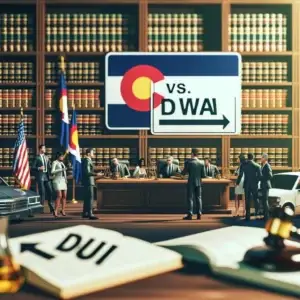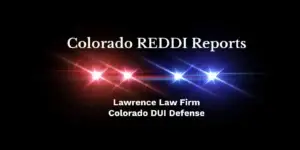Colorado Criminal defense can seem simple in some regards, but it can get complicated very quickly. A common term that most Americans know is self-defense. It is an easy enough concept to understand, but the legalities and procedure are specific.
If you have criminal charges in Colorado, it’s important to talk to a Colorado criminal defense attorney. Most attorneys will provide free consultations without engaging them as legal representation.
The purpose of this article is to explain some of the finer points of Colorado self-defense. Specifically, the impact of reckless mens rea.
What is Mens Rea in Colorado criminal law?
Most criminal crimes under the Colorado Revised Statutes have a mens rea and actus rea. Mens rea is a latin term that means guilty mind, and Actus rea is defined as guilty mind. In plain English, a crime is defined as a criminal act combined with criminal intent.
Every crime will have a criminal intent. For example, third degree assault is defined as intentionally or reckless causing bodily harm. Intent is an element of most criminal charges. The prosecution is required to prove intent, like any other element, beyond a reasonable doubt.
The most common intents used in the Colorado criminal code are intentionally, knowingly, recklessly, or negligently.
A person acts “intentionally” when it is their conscious objective to cause the specific result. Knowingly means the person is aware that his conduct is practically certain to cause the result.
Recklessly means a defendant consciously disregards a substantial and unjustifiable risk that a result will occur. Negligence is not doing an action in a reasonable or prudent manner.
Very few crimes require a negligent mental state. There are also crimes that do not require a mental state. Traffic infractions and DUI for example are “strick liability” infractions. A person does not have to intent to drive under the influence.
What is Self-Defense in Colorado?
Self-defense is an affirmative defense under Colorado law. An affirmative legal defense is a justification defense. In essence, a defendant admits to the underlying offense but is not guilty for a justifiable and legal reason.
Self-defense is called “Use of Force” under Colorado law. It has two elements. A defendant must show that he was under attack or reasonably believed he was about to be attacked. The second element is that a defendant responded with sufficient force to repeal that attack.
What does it mean to be under attack for purposes of Self-Defense?
C.R.S. 18-1-704(1) states a person is permitted to defend themselves from what they reasonably believe the use or imminent use of unlawful force. Being under attack is easy to understand. If a person is being attacked, they can respond to prevent the attack from continuing.
In this kind of situation, the question will become who the initial aggressor is. If a person attacks and his attacked in response, they will not have the right to act self-defense. Initial aggressor is a very fact specific determination.
The question can also become irrelevant based on the facts. If a fight happens and the parties split up and separate. The initial aggressor of the first confrontation may not be the initial aggressor of the second.
Reasonably believing that they are about the be attacked is even more fact specific. A person does not have to wait until a punch is thrown prior to defending themselves. In these cases, anything and everything could be relevant.
Certain rules of evidence can also be overcome. For example, prior conduct actions of the parties will not be introduced. If the defendant can testify concerning a pattern of their attacker, the rules of evidence can be overcome.
A defendant does not have a duty to retreat.
What does it mean to respond with sufficient force?
The second part of self-defense is that a defendant is only permitted to use the force required to defend themselves. This typically means a person can only respond to force with force. In simple terms, a defendant is not permitted to use deadly force to repeal a non-deadly attack.
By way of example, a person that thinks they are about to get punched may not respond with a deadly weapon. Conversely, a defendant that thinks they are about to get shot can respond with a deadly weapon.
Another important factor is the defendant does not use excessive force. If a citizen defends themselves and continues their attack, the self-defense claim may not be effective.
How does a Reckless Mens Rea Impact Self-Defense?
In July of 2024, the Colorado Supreme Court issues an order concerning the reckless mens rea and self-defense. The Court reasoned it is impossible for a person to act both recklessly and in self-defense. The affirmative defense requires one to act justifiably, while recklessness requires one to act with conscious disregard to an unjustified risk.
Essentially, they argue it is logical for a defendant to argue they were justified. However, it is not logical to argue they acted unjustifiably in a justified manner.
While self-defense is not an affirmative defense, it did find an argument of self-defense can operate as a traverse. This is a defense that tries attempts to negate, or traverse, over the prosecutions burden of proving a defendant disregarded an unjustified risk.
How does this impact a Colorado Criminal Defense?
Several crimes in Colorado have multiple mental states that can be alleged. For example, third degree assault can be committed in both a reckless and intentional manner. At trial, a jury will be instructed on the applicable law to apply to the facts that are heard.
The jury instruction phase of a criminal trial is crucial when an affirmative defense is asserted. A self-defense instruction could be highly confusing to a jury if they are told the crime has two mental states and the defense only applies to one.
It is important to litigate as much as possible at this stage to lock the state into what they are alleging. If the facts do not support a reckless instruction, it could be possible to keep that allegation out.
It is always important to remember that prosecutors will often charge various crimes. Denver municipal charges will often include a disorderly conduct charge along with assault allegations. Affirmative defense cannot be asserted against these types of criminal offenses.
The instructions are given prior to closing statements. Closing statements are crucial in the litigation process. A good attorney will be able to explain the complexities of a use of force case and walk the jury though the relevant law to explain why a not guilty verdict is appropriate.
Get an Aggressive Aurora Criminal Defense Attorney
Criminal defense cases can be extremely serious, even if they are minor misdemeanor cases. These are often charged as acts of domestic violence. It is important to understand what domestic violence is and how to best defend against these types of cases.
Our firm routinely represents individuals accused of domestic violence. We are open during regular business hours, but we will stay late or be available on weekends if necessary. Schedule a free consultation.
Our Self-Defense Attorney is ready to talk and defend you against any domestic violence charge. We handle cases in Denver, Aurora, Arapahoe County, Adams County or any court in the State of Colorado





